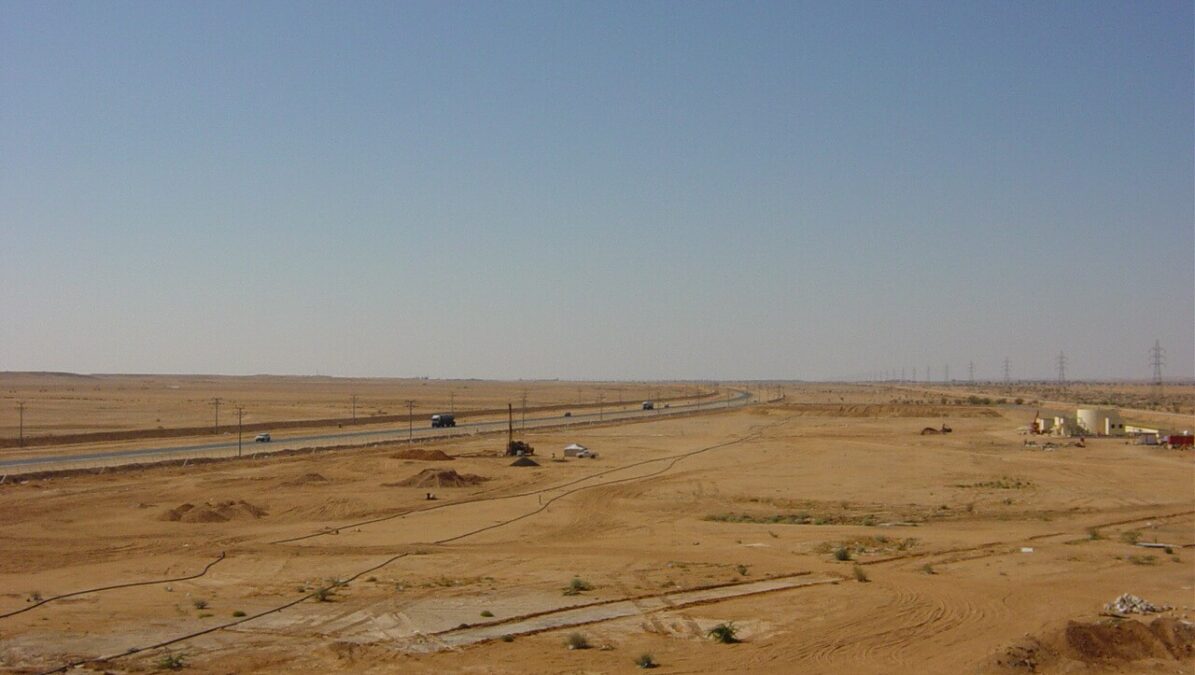By Jeff M. Sellers
Five months after the daughter of a member of Saudi Arabia's religious police was killed for posting online about her faith in Christ, Saudi authorities have reportedly arrested a 28-year-old Christian man for describing his conversion and criticizing the kingdom's courts on his website. Saudi police arrested Hamoud Bin Saleh on January 13, according to the Arab Network for Human Rights Information (ANHRI), "because of his opinions and his testimony that he had converted from Islam to Christianity". Bin Saleh, who was detained for nine months in 2004 and again for one month in November 2008, is reportedly being held in Eleisha prison in Riyadh.
Pray for the persecuted Christians in the Middle East! Like the tree in the picture, they are often alone among family and friends with their faith. They thirst for what we often take for granted: Christian fellowship, Bible teaching and free access to the Bible in their native language.
The experience of the watch led to Christ
On his website, which Saudi authorities have blocked, Bin Saleh wrote that his journey to Christ began after he witnessed the public beheading of three Pakistanis with drug convictions. Shaken, he began an extensive study of Islamic history and laws and Saudi law. He became disillusioned by sharia law (Islamic laws) and horrified that the authorities in the kingdom only prosecuted poor Saudis and foreigners. "I became convinced that the unfortunate Pakistanis were executed in accordance with the laws of Muhammad solely because they are poor and have no money or high positions over which they had no control or power," he wrote in Arabic in his post on December 22, referring to "this terrible bias in law enforcement in Saudi Arabia."
Dangerous to bring the Bible into Saudi Arabia
As a 2003 graduate in English Literature from Al Yarmouk University in Jordan, Bin Saleh's research led him to explore other religions, and during his travels he gained access to a Bible. "My mind kept asking questions and desperately searching for answers," he wrote. "I went on vacations to read about comparative religion and I got the Bible, and I used to give these books to someone before going back to Saudi Arabia, as bringing such books to the country is considered an unforgivable crime that will throw the offender into a dark prison."
Forgiveness over the death penalty
After reading how Jesus forgave - not stoned - a woman convicted of adultery, Bin Saleh finally accepted Christ as his savior. "Jesus . . . took us beyond physical salvation when he offered us forgiveness, which is the salvation of eternal life and mercy," he wrote. "Just seek and pray for God's light; there may be no books available in Saudi Arabia to help you make comparative studies between the teachings of Muhammad (which I believe are a series of political, social, economic and human disasters) and the teachings of Jesus, but there are many sources available on the web through which you may reach the bosom of the Father of salvation. Seek salvation and you will attain it; may the Lord keep you from the pitfalls of the devil."
Death penalty for apostasy - may not be enforced by the state
With the Quran and Muhammad's statements (Sunna) as its constitution, Saudi Arabia enforces a form of Sharia, which originated with the 18th century Sunni scholar Muhammad ibn Abd Al-Wahhab, which calls for the death penalty for "blasphemy," insults to Islam or its prophet, Muhammad. Similarly, conversion from Islam to another faith, "apostasy," is punishable by death, although the US State Department's 2008 report on international religious freedom notes that there have been no confirmed reports of executions for either blasphemy or apostasy in recent years. Saudi Arabia's ruling monarchy restricts media and other forms of public expression, although according to the State Department report, authorities have shown some tolerance for criticism and debate since King Abdullah bin Abdul Aziz Al Saud officially came to the throne in 2005. A spokesperson for the Saudi Arabian Embassy in Washington DC would neither confirm the arrest of Bin Saleh on January 13 nor comment on the reasons for it.
Previous arrests
When Bin Saleh wrote that both Islam and Saudi Arabia promote injustice and inequality, he described himself as a scholar/author committed to achieving full rights for the Christian minority in Saudi Arabia. He noted on his now-banned website ("Masihi Saudi," at the address http://christforsaudi.blogspot.com ) that he had been arrested twice, the first time on January 18, 2004 in Beirut, Lebanon. The UN High Commissioner for Refugees office there had informed the Saudi authorities that he had been accepted as a "refugee on the basis of ideological persecution," he wrote, but a few days later intelligence agents from the Saudi embassy in Beirut, "in collusion between Lebanese authorities and [former Prime Minister] Rafik Al-Hariri's government," handed him over to Saudi officials. After being held for nine months in Saudi Arabia, he was released but banned from traveling, writing and appearing in the media. He was arrested for a second time on November 1, 2008. "I was interrogated for a month about some articles in which I condemned the Saudi regime's violation of human rights and [the rights] of converts to Christianity," he wrote. During a Saudi-sponsored interfaith dialogue conference at UN headquarters in New York with representatives from 80 countries on November 12-13, Saudi authorities released Bin Saleh, according to ANHRI, but quickly arrested him again when it was over. His arrest in November came less than a year after dissident Fouad Ahmad al-Farhan became the first Saudi arrested for online speech on December 10, 2007; al-Farhan was released in April 2008.
Cruel punishment from the family for dropping out
In August 2008, a 26-year-old woman was killed for revealing her faith on a website. Fatima Al-Mutairi had reportedly revealed through online statements that she had left Islam to become a Christian. Gulfnews.com reported on August 12, 2008 that her father, a member of the religious police or the Commission for Promotion of Virtue and Prevention of Vice, cut out her tongue and burned her to death "after a heated debate on religion." Al-Mutairi had written about hostility from family members after they discovered she was a Christian, including insults from her brother after he saw her online statements about her faith. Some reports suggested that it was her brother who killed her. She had allegedly written an article about her faith on a blog she was a member of under the nickname "Rania" a few days before the murder.
Compass Direct News and Danish European Mission



